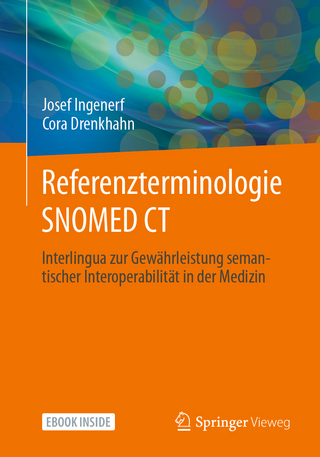
Numerical Integration of Space Fractional Partial Differential Equations, Volume 2
Morgan & Claypool Publishers (Verlag)
978-1-68173-209-1 (ISBN)
Partial differential equations (PDEs) are one of the most used widely forms of mathematics in science and engineering. PDEs can have partial derivatives with respect to (1) an initial value variable, typically time, and (2) boundary value variables, typically spatial variables. Therefore, two fractional PDEs can be considered, (1) fractional in time (TFPDEs), and (2) fractional in space (SFPDEs). The two volumes are directed to the development and use of SFPDEs, with the discussion divided as:
Vol 1: Introduction to Algorithms and Computer Coding in R
Vol 2: Applications from Classical Integer PDEs.
Various definitions of space fractional derivatives have been proposed. We focus on the Caputo derivative, with occasional reference to the Riemann-Liouville derivative. In the second volume, the emphasis is on applications of SFPDEs developed mainly through the extension of classical integer PDEs to SFPDEs. The example applications are:
Fractional diffusion equation with Dirichlet, Neumann and Robin boundary conditions
Fisher-Kolmogorov SFPDE
Burgers SFPDE
Fokker-Planck SFPDE
Burgers-Huxley SFPDE
Fitzhugh-Nagumo SFPDE.
These SFPDEs were selected because they are integer first order in time and integer second order in space. The variation in the spatial derivative from order two (parabolic) to order one (first order hyperbolic) demonstrates the effect of the spatial fractional order ?? with 1 ≤ ?? ≤ 2. All of the example SFPDEs are one dimensional in Cartesian coordinates. Extensions to higher dimensions and other coordinate systems, in principle, follow from the examples in this second volume. The examples start with a statement of the integer PDEs that are then extended to SFPDEs. The format of each chapter is the same as in the first volume. The R routines can be downloaded and executed on a modest computer (R is readily available from the Internet).
My research focus is applied mathematics broadly. This includes numerical linear algebra, optimization and solving differential equations. My primary research interest concerns the areas of numerical analysis, scientific computing and high performance computing with particular emphasis on the numerical solution of ordinary differential equations (ODEs) and partial differential equations (PDEs). One focus of my work is programming efficient numerical methods for ODEs and PDEs. I have extensive experience in MATLAB, Maple, Mathematica and R programming of transportable numerical method routines, but I am also experienced in programming in C, C++ and C#, and could readily apply these programming systems to numerical ODE/PDEs. Recently, I have become interested in fractional differential equations (FDEs), especially the numerical solution of fractional initial value problems (FIVPs) and space fractional differential equations (SFPDEs). William E. Schiesser is Emeritus McCann Professor of Computational Biomedical Engineering and Chemical and Biomolecular Engineering, and Professor of Mathematics at Lehigh University. His research is directed toward numerical methods and associated software for ordinary, differential-algebraic and partial differential equations (ODE/DAE/PDEs). He is the author, coauthor or coeditor of 18 books, and his ODE/DAE/PDE computer routines have been accessed by some 5,000 colleges and universities, corporations and government agencies. Washington University, St. Louis
Preface
Simultaneous SFPDEs
Two Sided SFPDEs
Integer to Fractional Extensions
Authors' Biographies
Index
| Erscheinungsdatum | 28.12.2017 |
|---|---|
| Reihe/Serie | Synthesis Lectures on Mathematics and Statistics |
| Mitarbeit |
Herausgeber (Serie): Steven G. Krantz |
| Verlagsort | San Rafael |
| Sprache | englisch |
| Maße | 191 x 235 mm |
| Gewicht | 525 g |
| Themenwelt | Mathematik / Informatik ► Informatik ► Programmiersprachen / -werkzeuge |
| Informatik ► Theorie / Studium ► Algorithmen | |
| Mathematik / Informatik ► Mathematik ► Analysis | |
| ISBN-10 | 1-68173-209-2 / 1681732092 |
| ISBN-13 | 978-1-68173-209-1 / 9781681732091 |
| Zustand | Neuware |
| Haben Sie eine Frage zum Produkt? |
aus dem Bereich


